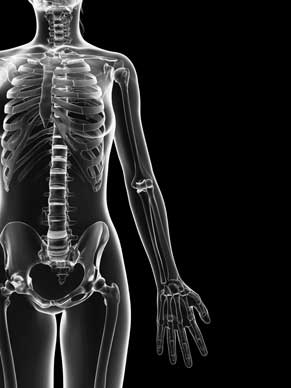Rheumatoid arthritis is a debilitating autoimmune disease that can lead to joint pain and a host of other health issues. As with many autoimmune diseases, patients often have to try many therapies before finding one that works. Unfortunately, some never get total relief of debilitating symptoms. However, a new paper on chronotherapy and rheumatoid arthritis suggests that carefully timing medications may lead to more relief of symptoms as well as fewer side effects.
The Circadian Rhythm of Autoimmune Disease
The immune system runs on a distinctive circadian rhythm, as well as seasonal and other rhythms, so it is no surprise that autoimmune disease does so as well. Immune system tends to peak while we are sleeping, allowing the body to detect and repair inflammation when it can be quickly repaired. Glucocorticoids, which suppress immune activity, as well as performing many other essential tasks, peak early in the day. There are also many other hormones that affect the immune system and show a 24-hour cycle.
Because of the circadian rhythm involved in immune activities, it is no surprise that many autoimmune diseases show a 24-hour cycle. In rheumatoid arthritis, also known as RA, pain and stiffness in joints are worse in the morning, usually immediately upon waking. This timing of symptoms is so predictable that it is used to differentiate RA from other joint diseases in diagnosis.
A Day with RA
 People with rheumatoid arthritis develop inflamed nodules on their joints that can make movement painful. Over time, these nodules can degrade healthy joints so that they don’t function well. In general, people with rheumatoid arthritis wake with joint pain, swelling, and stiffness. This is likely to due to an increase in IL-6, an important immune mediator of inflammation. The glucocorticoid peak in the morning gradually decreases symptoms, which are generally manageable throughout the day.
People with rheumatoid arthritis develop inflamed nodules on their joints that can make movement painful. Over time, these nodules can degrade healthy joints so that they don’t function well. In general, people with rheumatoid arthritis wake with joint pain, swelling, and stiffness. This is likely to due to an increase in IL-6, an important immune mediator of inflammation. The glucocorticoid peak in the morning gradually decreases symptoms, which are generally manageable throughout the day.
The intense morning pain associated with rheumatoid arthritis begins early enough in the morning that it can interfere with sleep, leaving people who have this disease fatigued. While people with RA are more likely to use pain medication in the morning, other medications such as immune suppressants generally are not given at any particular time. A new paper suggests that this may be a mistake.
Chronotherapy and Rheumatoid Arthritis
How can chronotherapy be used to help rheumatoid arthritis and other autoimmune diseases? Researchers suggest that taking a delayed release glucocorticoid at night that prevents the immune system from reaching as high of a nighttime peak, may alleviate much of the morning stiffness and other symptoms. People with RA commonly take glucocorticoids but often do so in the morning. Levels are often too low at night to have a large effect at the time when they are most needed.
This approach may also be helpful with methotrexate, monoclonal antibodies and other medications used to treat RA. These drugs target very specific cellular processes. Taking them when they are most likely to have an impact could mean a more effective treatment, as well as lower dosing and fewer side effects.
New and sophisticated drugs are coming out every day for autoimmune diseases such as rheumatoid arthritis, offering hope to people who desperately need answers. Understanding the circadian and seasonal rhythms of autoimmune diseases will lead to more effective treatments, which ultimately means more quality of life for those who desperately seek it.


